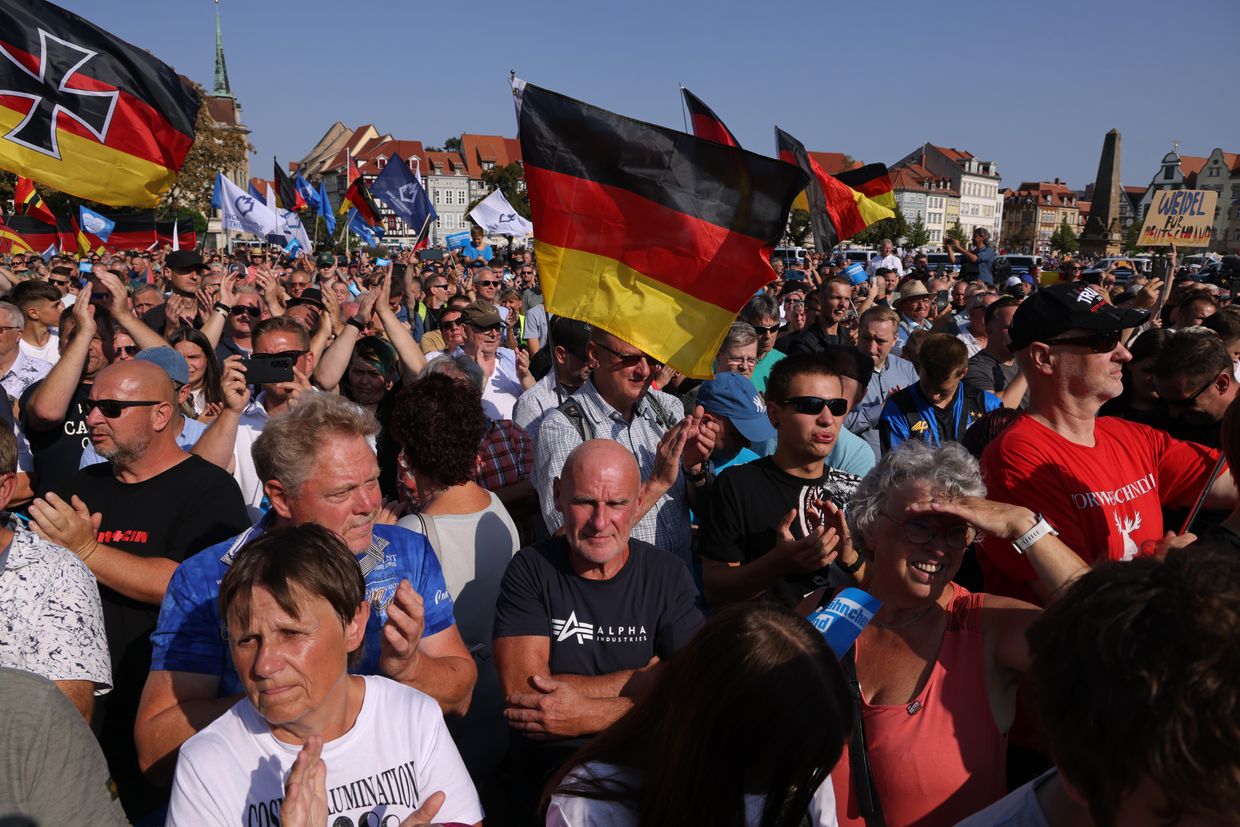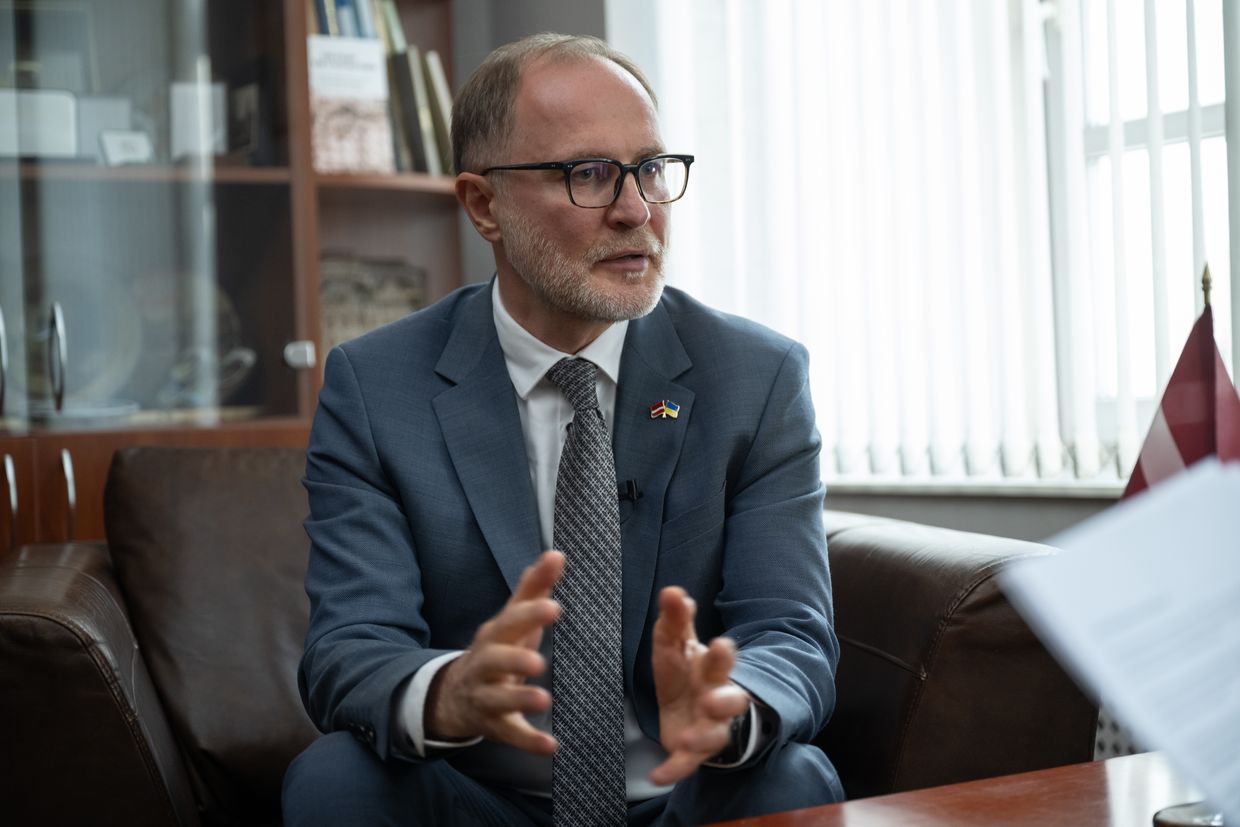'Would you blame Hungarians for Soviet invasion?' - Von der Leyen criticizes those who 'muddy the waters' on Ukraine

European Commission President Ursula von der Leyen on Aug. 30 criticized certain EU politicians for "muddying the waters" and shifting the blame for Russia's war on Ukraine, drawing historical comparisons to Soviet aggression in Central Europe.
"They blame the war not on the invader but on the invaded. Not on (Vladimir) Putin's lust for power, but on Ukraine's thirst for freedom," von der Leyen said at the Globsec conference in Prague, attended by the Kyiv Independent.
"So I want to ask them: would you ever blame the Hungarians for the Soviet invasion of 1956? Would you ever blame the Czechs for the Soviet oppression of 1968?"
Von der Leyen, recently re-elected as head of the EU's executive arm, did not name these politicians, but insinuated they hail from Central Europe.
The Hungarian and Slovak governments have been vocal critics of the EU's support for Ukraine, opposing military aid while continuing to strengthen economic ties with Russia.
"The Kremlin's behavior was evil and atrocious back then, and it is evil and atrocious today," the EU official said.
Von der Leyen also criticized Europe's pre-2022 "illusion" that greater economic integration with Russia would lead to more stability.
"What was supposed to be the source of security, because the source of vulnerability," von der Leyen said, adding that Putin's attempts at energy blackmail has failed as Europe has developed its own capacities.
She emphasized that Europe has begun taking its defense seriously, but warned that significant work and investment are needed.
To that end, she announced plans to introduce the first-ever EU Defense Commissioner. Currently, security and defense issues are handled by various officials, such as the Market Commissioner and the High Representative for Foreign Affairs.
Earlier at the Globsec conference, Czech President Petr Pavel noted that Ukraine and its allies are facing "a long conflict with an uncertain outcome."
"The time can, however, work in Ukraine's and our favor, but only if we pull ourselves together and learn lessons of the past 2.5 years," Pavel said.
"At this point, we are dealing with Russia that still believes it has no reason to change its course of action."
Pavel called for long-term, predictable support, stronger sanctions enforcement, and outreach to third countries to prevent them from helping Moscow evade sanctions.
"Russia must grow to an understanding that persisting in this misguided war will no longer be in their interest," Pavel said.
"The Ukrainians are doing more than their part to drive this message home. They pay the highest price – their lives. Whatever we do to support them will never bear the same price tag."
Government officials, experts, and journalists from Europe and beyond have gathered in Prague for the three-day conference, which is addressing today's main security challenges, with Russia's war as a key focus.













